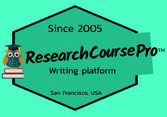Should human beings be thought of as having an essential or nonessential nature?
- Type of paperArgumentative Essay
- SubjectPhilosophy
- Number of pages5
- Format of citationMLA
- Number of cited resources0
- Type of serviceWriting from scratch
- Instructions will be uploaded later
.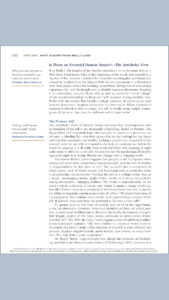
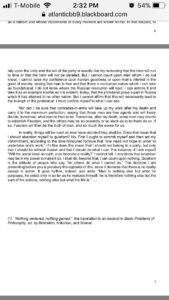
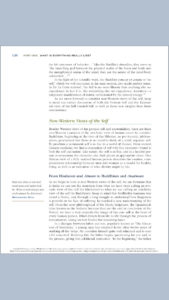
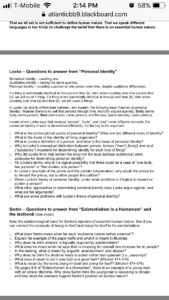
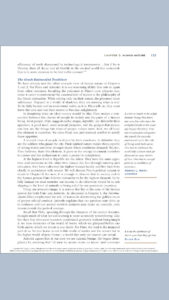
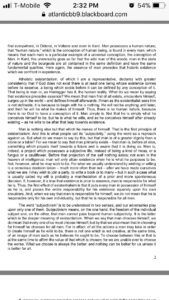
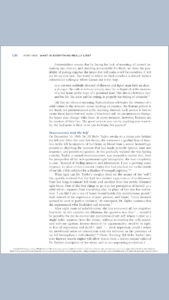
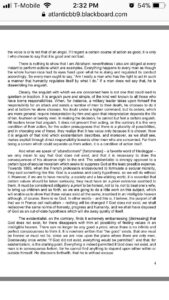
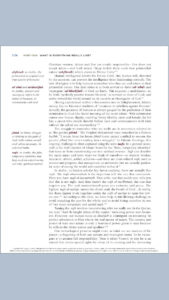
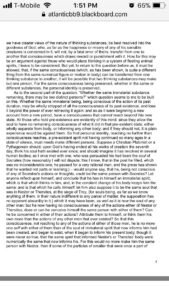
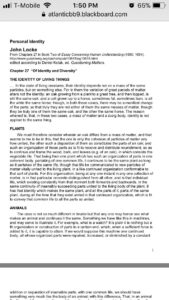
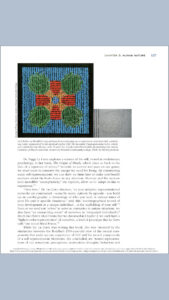
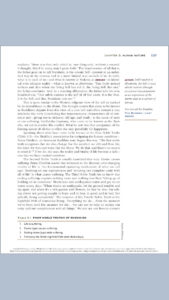
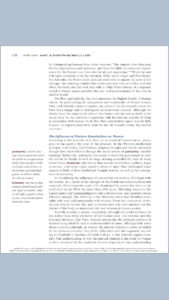
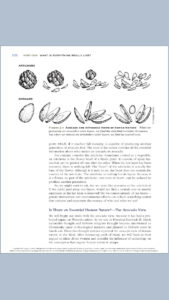
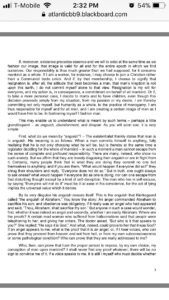
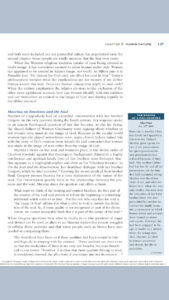
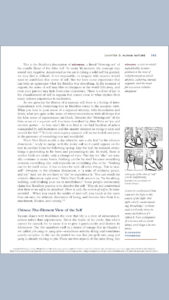
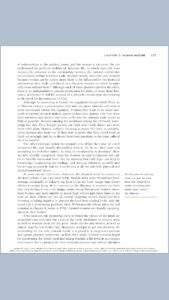
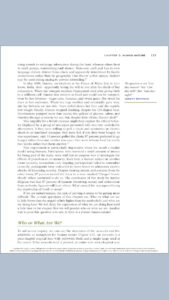
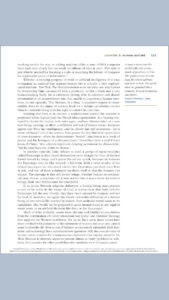
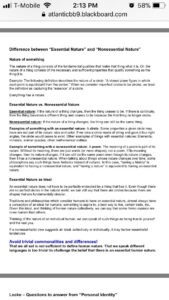
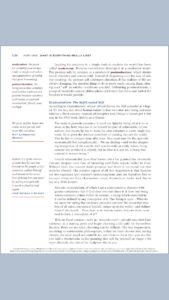
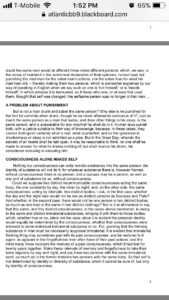
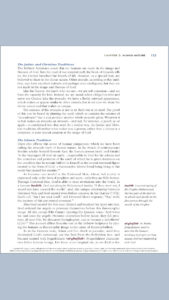
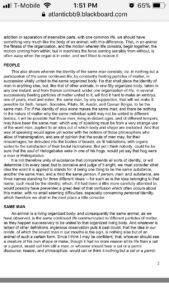
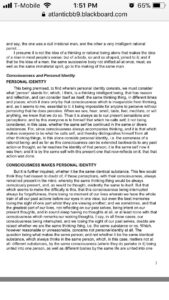
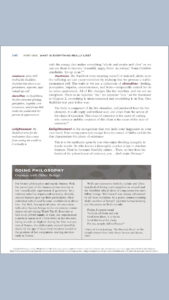
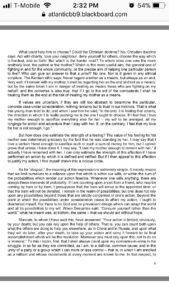
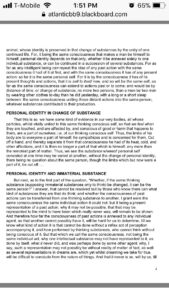
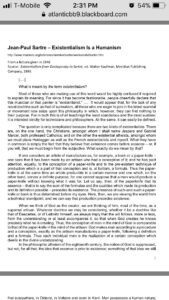
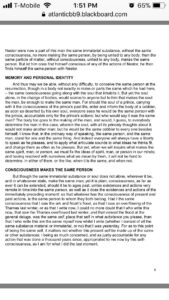
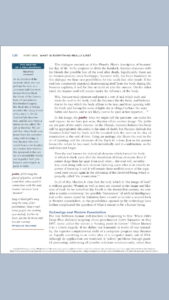
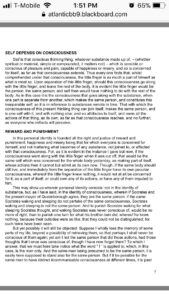
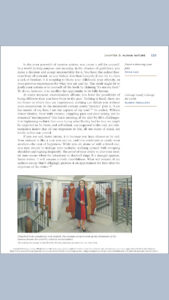
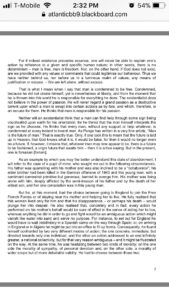
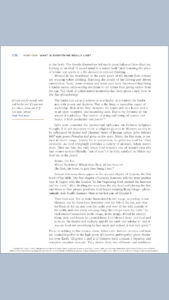
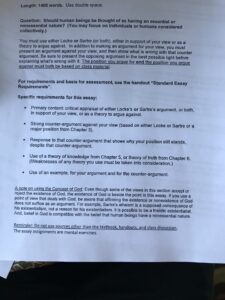
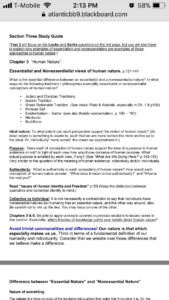
Answer
Human Beings should be thought of as having an Essential Nature
Most individuals seem to find it a significant measure in identifying certain qualities and values, whether positive or negative that encompasses the true essence of human beings’ nature. The urge for considering human nature as essential or non-essential is seen to be confusing, as to some point of view it quite seems that we cover all the aspects (essential and non-essential) and even more. The reason emanates from the fact that human being is well capable of engrossing certain extreme acts of brutality and cruelty and surprising deeds of both altruism and generosity. Besides, a human being can also be dynamic, cooperative and competitive, as we are capable of living, by and large, peacefully with each other, as well as being violent, as notably seen in such actions as murder, war, and rape. In other words, humanity’s essential nature, over the years, is made up of cooperation, competition, greedy and selfish, generous and kind, empathetic, violent and brutish, peaceful and loving, and spiritual. There are various theories that tend to explain human nature. This paper will, therefore, give a critical appraisal of Locke’s argument on the essence of human nature, in support of other theories – avocado nature and artichoke nature. The paper will then give a summary of the rationale of whether human beings should be thought as having as essential or non-essential nature.
John Locke was an English philosopher and physician, who was regarded as one of the most influential thinkers ever lived. Through his renowned theory, Theory of Mind, Locke explored the origin of modern conceptions of identity and the self, figuring importantly in the work of later philosophers such as Immanuel Kant, David Hume, and Rousseau. According to Schouls (1992), Locke was considered as the first philosopher to regard the self through a continuity of consciousness. He hypothesized that human being is born with blank state mind, called tabula rasa, made of inmate ideas (Schouls, 1992). At that point, knowledge is instead determined by experiences emanating from the sense of perception. This basis of rational therefore rose to the significance of Empiricism. An instance of Locke’s belief in empiricism is notably evident in his quote, “whatever I write, as soon as I discover it not to be true, my hand shall be the forwardest to throw it into the fire,” (Schouls, 1992, p. 11).
In relation to Locke’s theory is the avocado’s perspective that suggests that human being is comprised of an inner rigid hub after peeling off the outer skin. According to Hill (1983), the inner self in a human being is fixed and rigid and can never be manipulated or altered by life experiences. The unchanging complexity of human inner self is therefore then the gear that steers the human nature. Regarding the rational in a religious perspective, the unchanging inner self is considered as the soul. However, artichoke’s perspective tends to define human beings as an onion that does not have any core. The artichoke’s perspective demonstrates that humans are changing in nature and their reactions to certain actions are influenced by various life experiences at some point. Nevertheless, given the power bestowed in a human being, we are perceived to be capable of holding off the situations around us, and grow a personality that does not change regardless of the life challenges and consequences we face. According to Hill (1983), the development of character entails the least aspect where artichoke is similar to an avocado.
The essence of regarding the nature of human beings as essential or nonessential still feels perplexing. To signify our nature down to a single or more quality regularly provides a platform of grounding a person or group’s philosophy of life or ideology, whether social, political, economic, psychological, spiritual, or a combination, and steers them in advocating for their particular social, political, or economic societal construction. For instance, if we were essentially loving, peaceful and caring, we would then have invested in advancing our lives and stop wasting our scarce resources on correctional centers and defense. And if we were essentially brutal and violent, we would have developed a strong military and law enforcement programs. What if we were essentially cooperative, dynamic and empathetic, then notably we would have indulged our scarce natural competitive and selfish impulses to enable us to establish our own natural and healthier path. And, what if we were essentially greedy, we would have developed limitations and boundaries that may be prevented the more successful greedy individuals from crushing the less successful but greedy ones.
Considering Locke’s theory and avocado’s perspective, I would affirm that definitely human beings are made of inner self (Schouls, 1992). It all, therefore, depends on how we explore the inner core in rationalization and how we address challenges we face. In effect, instead of latching on to a single essential quality, and tend to insist that the quality signifies humanity’s true nature, we would, therefore, recognize the complications in our nature, and then ascertain a significant standard or principle that depends on the complications for its precise and healthy implementation, and eventually find ourselves more creatively addressing these real challenges we face. For instance, Aristotle and Plato once regarded human nature by recognizing and underlying that men are seen as engaged in more rational aspects while women in irrational aspects such as body and emotion. Besides, Christians in the fourth-century church also tend to debate whether women were created with Man’s or God’s image. However, such points of view are just mere definitions that seem to disregard a certain category of an individual based on their abilities or cultural degradation. Additionally, the notion employed in using a single character to categorize people or to generalize them according to their behavior is intensely criticized. Such critics as Non-Western, Existential and Feminist, also affirms that human beings’ nature should not and cannot be classified in regards to any irrational aspect.
Regardless of the fact that humans appear to be similar, each one of them has their own nature in their inner self that makes them unique and distinct from others. The significance of marginalization, generalization, and grouping has impacted an undermining perspective towards a certain group of individuals in the society since humans have various inabilities that make none of them capable of taking care of various actions and tasks or to behave in a certain manner. Locke’s theory of mind suggests that human being have the ability to make rational decisions. In response to that, then human beings should be thought as having an essential nature Schouls (1992). This is because we are made of the inner self that drives the principles and experiences we face in our daily activities. Such a principle entail that, the essence of our nature is defined by us, humans, live a life in which we attempt to do the maximum good and minimum cause damage to other people, animals, surroundings or even ourselves, through the decisions we make – in such experiences of what we eat, buy, wear or say; what we do for work or entertainment, and how we contribute to society and democracy as volunteers, nations, and amendment makers.
In conclusion, as much as we should disregard the essence portrayed in critics of human nature essentiality, we should also acknowledge that humans have the ability to do greater good and greater harm in equal measure. It all depends on how we strive in doing more of the former and less of the latter, in ensuring that we harness our rationality, creativity, identity, limitations, kindness, and control, and maintaining the key monitor approach in our violent, greedy, brutal and detestable desires and instincts. In effect with Locke’s definition that self as made of conscious reasoning of whatever nature (either spiritual, simple, compounded or spiritual) that is considered functional or conscious of either pleasure or pain, and capable to endure happiness or desolation, and so apprehensive for itself, so long as that consciousness spreads. Living a life per the principle might be a little humbling, complicated and challenging, but it may intensely instigate a rewarding, significant and eventually joyful life, as well as offering a better world in the process.
References
Hill, Thomas E. “Ideals of human excellence and preserving natural environments.” Environmental Ethics 5.3 (1983): 211-224.
Schouls, Peter A. “Reasoned freedom: John Locke and enlightenment.” (1992).
